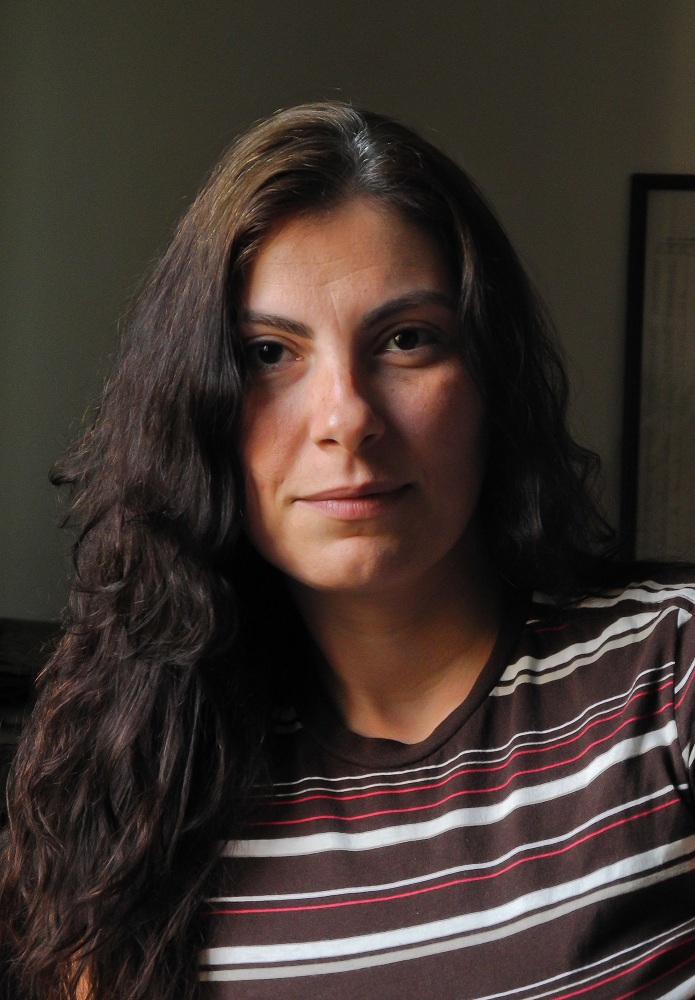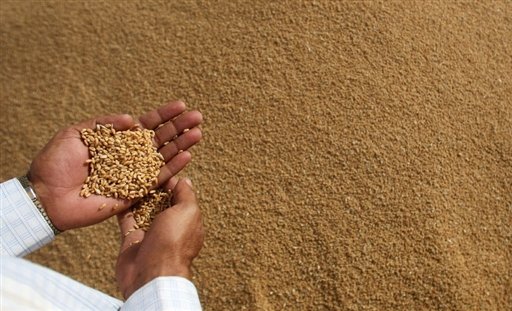
(Photo by Joel Gulhane)
Twenty-one-year-old Egyptian Fatma Awad took a decision to alter her lifestyle and become a vegetarian. In Denmark, where she lives, such a lifestyle is culturally accepted and has gradually become normal conduct in society. But a trip back to Egypt left her feeling ridiculed and judged.
Awad is not the only vegetarian to have suffered for not being in alignment with Egyptian society.
As Eid Al-Adha approaches, vegetarians and animal activists are objecting to the tradition of making a sacrifice during the Islamic celebration.
This time last year, Nada Helal, a student of Middle East studies at the American University in Cairo took the decision to stop eating meat.
Islamic Sharia (law) in slaughtering prescribes using a well-sharpened knife to make a swift, deep incision that cuts the front of the throat, the carotid artery, windpipe, and jugular veins to cause the least amount of suffering to the animal. Animals are not to be subjected to others being slaughtered.
Butchers in Egypt often do not follow such rules. Instead, animals are often able to view others being killed, may have their leg tendons slashed or eyes poked. Some animals have their throats cut repeatedly after attempting to stand, stagger about and bleed after the first cut.
“[I] was overwhelmed by the stench and sight of blood everywhere… I got home and declared I would no longer eat meat,” Helal said.
Animal rights advocate with Society for the Protection of Animal Rights in Egypt Ahmed Adam said that he couldn’t stand defending animals and yet being double-faced.
“It wouldn’t be fair to just fight for pet animals, while livestock are going through hell because of our selfishness,” he said.
But whether they opt for vegetarianism or veganism (where all animal products are eliminated from their diet) non-meat eaters are met with scepticism in Egypt.
“I believe animals are not ours to use them for eating, clothing, entertainment or even in scientific experiments,” said Iman Alsharif, a student of clinical pharmacy at MTI University.

(Photo by Marwa Morgan)
Vegetarians say that most families are dismissive of such lifestyle choices.
“They think it’s stupid to forbid yourself from something God allowed us, I think they’ll always mock it just because it’s different, that’s how Egyptians are with anything else,” said Nada Abdo, a recent graduate of Dover American International School.
Although families may not force meat onto their vegetarian members, some make fun of such a decision and believe it to be a “phase” that will pass.
Adam said that, for those who can afford meat, vegetarianism is a joke—while many of those in the animal welfare community try to actively ignore it.
Vegetarians often decline azayem (banquet invitations), especially family gatherings, to avoid all the hassle about explaining their food choices. Generous by nature, Egyptian hosts have to force-feed anyone at the table and most dishes usually include meat or other animal products. Not tasting ever single dish or refusing more food is considered an offense, let alone explaining a different lifestyle.
“I think most Egyptians don’t know enough about the topic,” said Hamed Alazzamy, a dentistry student at Misr International University. “Humans usually reject what they don’t understand.”
Some vegetarians, like designer Bishoy Zakaria, however, don’t let their dietary choices get in the way of their social life – even if it means eating nothing but carrots and cucumbers for dinner because there’s nothing else suitable.
Many vegetarians find that friends are more supportive of the lifestyle shift.
“They actually find it strange, but when I go out with them they show respect when I take enough time to find a vegetarian meal,” Alsharif said.
Even those who manage to stand up for choices they believe in against this social pressure, do not have a smooth way to implement it. Finding commodities that fit their lifestyle is almost impossible.
“In supermarkets, I read the ingredients of every product I want, and I [usually] find one or two components at least that come from animal source,” said Alsharif. “I cannot find alternatives for some food types. My choices in food spectrum are very, very little now.”
She added that “in Egypt we don’t have [many] vegan restaurants unfortunately. Since becoming vegetarian until this very moment, I went to restaurants only two times.”
“It’s hard finding a meal outside since mostly everything is cooked with the same oil they use for cooking meat/chicken,” she said. “Even salads at fast food places… are cooked with oils used in meat.”
Alsharif resorts to uncooked food. “It’s usually a homemade salad with some fruits on the side.”
“Soya” milk is one of the few vegetarian friendly products available, and is only available in high-end supermarkets and not yet popular amongst most of the population, Adam said.
As for clothes, it’s a bit hard to manage, said Helal. Vegetarian clothing uses man-made material, avoiding leather, wool and any other animal products.
“I try doing my best, but it’s hard finding animal friendly products [in terms of cosmetics, for example] here. I’ve stopped purchasing genuine leather.”
Abdo said it is much easier being vegetarian outside Egypt. Zakaria doesn’t mind this scarcity. “The most important thing is that I find vegetarian mayonnaise,” he said.
On the other hand, dentist Ahmed Ghoniem, who tried vegetarianism as a weight loss diet instead of a lifestyle commitment, believes that it has become easier now since Christian fasting-friendly products are readily available.
It is still scientifically debatable whether a vegetarian diet is healthier or not, but vegetarians claim that their diets have a positive impact on their wellbeing.
“You feel lighter and constantly alert,” Ghoneim said.
Alazzamy agreed. “While I disagree with animal cruelty, my main reason for switching was for the health benefits,” he said. “Within a week, I was feeling a lot livelier.”
Adam views the struggle from a wider angle.
“I think it has to do more with culture. Fast food joints, restaurants and everything being meaty, and that it is hip always following the ‘bad’ traits of the west and ignoring the good. He said that what the west was a 100 or 50 years ago we are today regarding our lifestyles, completely disregarding the breakthroughs and ‘truths’ regarding nutrition and diet”
Many Egyptians are vegetarians without even knowing it. Since more than a quarter of the Egyptian population live below the poverty line (CAPMAS 2013), there is no meat in their diets. “That’s why the majority of Egyptians are healthier than can be expected with everything else around – stress, sicknesses due to the garbage around,” Adam said.
But they see vegetarianism in a cynical way when it’s presented from an animal welfare perspective. Many mistakenly believe meat is the only source of protein, Adam said. Some people who question vegetarianism might argue that plants have feelings like animals. Zakaria agrees, but says that animals have a nervous system and a much more sophisticated brain, perception and consciousness.
“My biggest temptations were kebda we mokh (liver and brain, usually fried) sandwiches, but I don’t crave for meat as much as before,” said Zakaria
“I do not want people to agree with me. All I ask is for them to respect my choices,” Awad said.



